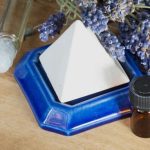Are aromatherapy oils safe for dental work? Aromatherapy oils have gained popularity for their potential benefits in dental care. The use of essential oils in dentistry has been a topic of interest, but it is essential to understand their safety and potential risks. In this article, we will explore the safety of aromatherapy oils for dental work, potential risks, research and studies on their safety in dentistry, proper usage, and alternative options.
Aromatherapy oils have been used for centuries to promote oral health and wellness. Their natural antibacterial and anti-inflammatory properties make them an attractive option for improving dental health. However, it is crucial to examine their safety when used in the mouth and to be aware of any potential side effects or risks associated with their use.
In this comprehensive guide, we will delve into the safety of using aromatherapy oils in dental care, including an understanding of their benefits and potential drawbacks. We will also explore research and studies that have been conducted on the use of essential oils in dentistry, as well as proper usage techniques and alternative options available for those who may be seeking alternatives to aromatherapy oils for dental work.
Understanding the Safety of Aromatherapy Oils in Dental Work
Aromatherapy oils have gained popularity in the field of dental care due to their potential benefits in promoting relaxation, reducing anxiety, and alleviating pain. However, it is essential to understand the safety considerations associated with using aromatherapy oils in dental work. While these essential oils can be beneficial, there are certain factors that should be taken into account to ensure their safe and effective use.
Quality and Purity of Aromatherapy Oils
When considering the safety of using aromatherapy oils in dental work, it is crucial to prioritize the quality and purity of the essential oils being used. Poor-quality oils or those that are adulterated with synthetic compounds can pose a risk to patients. It is important for dental professionals to source their aromatherapy oils from reputable suppliers that adhere to strict quality standards.
Patient Sensitivities and Allergies
Another factor to consider when using aromatherapy oils in dental care is the possibility of patient sensitivities or allergies. Before incorporating these essential oils into treatment, it is imperative for dental practitioners to assess their patients’ medical history and inquire about any known allergies or sensitivities. This information will help avoid any adverse reactions when using aromatherapy oils during dental procedures.
Proper Dilution and Application
The safe use of aromatherapy oils in dental work also involves understanding the proper dilution ratios and application methods. Essential oils are highly concentrated substances that should never be applied directly to the skin or mucous membranes without dilution. Dental professionals must follow guidelines for diluting these oils and utilize appropriate application techniques to ensure patient safety during treatment.
Potential Risks and Side Effects of Using Aromatherapy Oils for Dental Work
Aromatherapy oils have gained popularity for their potential benefits in dental care, but it is essential to understand the potential risks and side effects associated with their use. While these oils can be beneficial, they also come with some potential drawbacks that individuals should consider before incorporating them into their oral care routine.
Skin Irritation
One of the potential risks of using aromatherapy oils for dental work is skin irritation. Certain essential oils, such as cinnamon or clove oil, can cause skin irritation if they come into direct contact with the skin. This is especially important to consider for individuals who may be applying these oils topically as part of their dental care regimen.
Mucosal Irritation
Another risk associated with using aromatherapy oils in dental work is mucosal irritation. When applied directly to the gums or mouth, certain essential oils can cause irritation to the mucous membranes. This can result in discomfort or a burning sensation, making it crucial for individuals to dilute these oils properly and use them sparingly.
Allergic Reactions
Individuals should also be aware of the potential for allergic reactions when using aromatherapy oils for dental care. Some people may have sensitivities to certain essential oils, leading to allergic reactions such as hives, itching, or swelling. It’s important to perform a patch test before using any new essential oil and cease use immediately if any adverse reaction occurs.
Research and Studies on the Safety of Aromatherapy Oils in Dentistry
Aromatherapy oils have been used for centuries to promote overall well-being, including dental care. The use of essential oils in dentistry has gained popularity due to their potential benefits in promoting oral health and reducing anxiety during dental procedures. However, it is important to understand the safety of using aromatherapy oils in dental work before incorporating them into your oral care routine.
Research and studies on the safety of aromatherapy oils in dentistry have focused on their antimicrobial properties, analgesic effects, and impact on anxiety levels during dental procedures. Several studies have shown that certain essential oils such as tea tree oil, clove oil, and peppermint oil exhibit antimicrobial properties that can help combat oral pathogens, which may contribute to the prevention of cavities and gum disease.
Additionally, research has also suggested that aromatherapy oils like lavender and chamomile can help reduce anxiety levels in patients undergoing dental treatments. The calming effects of these essential oils may be beneficial for individuals who experience dental phobia or anxiety when visiting the dentist. Studies have also explored the potential side effects of using essential oils in dental care, such as allergic reactions or irritation, to provide a comprehensive understanding of their safety.
Overall, ongoing research and studies continue to evaluate the safety and efficacy of aromatherapy oils in dentistry. While initial findings are promising, it is important to consider individual sensitivities and consult with a dental professional before incorporating essential oils into your oral care routine.
- Some commonly studied essential oils for dental care include:
- Tea tree oil
- Clove oil
- Peppermint oil
- Lavender oil
- Chamomile oil
- Research has shown that certain essential oils exhibit:
- Antimicrobial properties
- Analgesic effects
- Anxiety-reducing properties
- Potential side effects of using essential oils in dental care may include:
- Allergic reactions
- Skin irritation
By staying informed about ongoing research and consulting with a healthcare provider, individuals can make informed choices about incorporating aromatherapy oils into their dental care regimen.
How to Properly Use Aromatherapy Oils in Dental Care
Aromatherapy oils can be a great addition to your dental care routine, providing both physical and emotional benefits. When using aromatherapy oils for dental work, it is important to use them properly to ensure safety and effectiveness. Here are some tips on how to properly use aromatherapy oils in dental care:
- Choose the Right Oils: Not all essential oils are suitable for dental use. Some oils, such as peppermint and clove, have been found to have beneficial properties for oral health. Make sure to select high-quality, pure essential oils from a reputable source.
- Dilution: Essential oils are highly concentrated and can cause irritation if applied directly to the skin or gums. It is important to dilute essential oils with a carrier oil, such as coconut or almond oil, before applying them to the skin or using them in mouth rinses.
- Application Methods: There are several ways to use aromatherapy oils for dental care, including adding a few drops to your toothpaste or mouthwash, using them in a mouth rinse, or applying them topically to the gums. Always follow the recommended usage guidelines for each specific oil.
Properly using aromatherapy oils in dental care can help you harness their benefits while minimizing any potential risks. By understanding the best practices for using these oils, you can incorporate them into your oral hygiene routine safely and effectively.
It is also important to note that while aromatherapy oils can offer benefits for dental care, they should not replace traditional oral hygiene practices such as brushing, flossing, and regular visits to the dentist. A holistic approach that combines essential oils with proper oral hygiene will contribute to overall oral health and well-being.
Alternatives to Aromatherapy Oils for Dental Work
When it comes to dental work, some individuals may opt for alternatives to aromatherapy oils for various reasons, including allergies or personal preferences. One popular alternative is the use of herbal extracts such as chamomile or mint.
These natural ingredients also offer soothing and antibacterial properties that can be beneficial for oral health. Additionally, some individuals may choose to use essential oil-free dental products such as fluoride toothpaste and alcohol-free mouthwash as an alternative to incorporating aromatherapy oils into their dental care routines.
Another alternative to aromatherapy oils for dental work is the use of traditional medicinal herbs like clove or myrrh. These herbs have been used for centuries in oral health practices due to their antibacterial and analgesic properties. They can be applied topically or used in homemade mouthwash recipes as a natural alternative to commercial products that contain essential oils.
For those who prefer a more holistic approach, probiotics are another alternative that can promote oral health. Probiotics are beneficial bacteria that can help balance the oral microbiome and reduce the risk of gum disease and tooth decay. Incorporating probiotic-rich foods like yogurt or kefir into one’s diet, or taking probiotic supplements, can be a natural way to support oral health without relying on aromatherapy oils.
Conclusion
In conclusion, the use of aromatherapy oils in dental care can offer potential benefits, but it is important to make informed choices when considering their use. While aromatherapy oils have been shown to have antimicrobial and anti-inflammatory properties that can be beneficial for dental work, it is crucial to understand the safety considerations and potential risks associated with their use.
Research and studies on the safety of aromatherapy oils in dentistry can provide valuable insights for both dental professionals and patients.
It is essential for individuals to properly understand how to use aromatherapy oils in dental care, including dilution ratios, application methods, and potential interactions with existing dental treatments. Consulting with a qualified aromatherapist or healthcare professional can provide guidance on the safe and effective use of these oils for dental purposes. Additionally, exploring alternative options such as herbal remedies or natural oral care products can offer a wider range of choices for individuals seeking holistic approaches to dental care.
Ultimately, making informed choices about the use of aromatherapy oils for dental care requires careful consideration of safety, efficacy, and individual needs. By staying informed about the potential risks and benefits, individuals can make decisions that align with their overall health and well-being. With the proper knowledge and guidance, aromatherapy oils can be a valuable addition to a comprehensive approach to dental care.
Frequently Asked Questions
Are Essential Oils Safe for Teeth?
Essential oils can be safe for teeth when used properly and in moderation. However, they should never be ingested, as some essential oils can be toxic if swallowed. When using essential oils for oral care, it’s important to dilute them properly and use caution to avoid any adverse reactions or irritation.
Are Essential Oils Safe for Oral Use?
Essential oils can be safe for oral use when used appropriately and in accordance with recommended guidelines. It’s crucial to dilute essential oils with a carrier oil before using them in the mouth to avoid any potential irritation or sensitivity.
Additionally, some essential oils can interact with certain medications, so it’s essential to consult with a healthcare professional before using them for oral care.
What Essential Oils Are Good for Dental Clinics?
Some of the essential oils that are good for dental clinics include tea tree oil, peppermint oil, clove oil, and eucalyptus oil. These essential oils have properties that can help support oral health, such as anti-inflammatory, antibacterial, and analgesic effects.
However, it’s important for dental clinics to use these essential oils cautiously and under the guidance of qualified professionals to ensure safe and effective use.

Are you looking for a natural way to improve your health and wellbeing?
If so, aromatherapy may be the answer for you.





